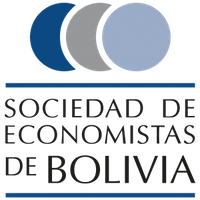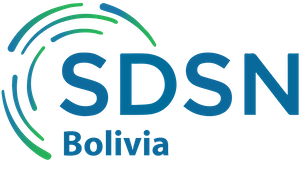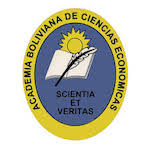Welcome
Welcome to the official website of 13th version of the Bolivian Conference on Development Economics (BCDE2022). BCDE2022 will be held on Thursday and Friday December 1st and 2nd, 2022, at Universidad Privada Boliviana (UPB), in La Paz, Bolivia.
The conference is organized by the Bolivian Society of Economists (SEBOL), Universidad Privada Boliviana (UPB), the Institute for Advanced Development Studies (INESAD), the Bolivian Academy of Economic Sciences (ABCE), and the Sustainable Development Solutions Network Bolivia (SDSN Bolivia).
BCDE2022 is planned to be held as an in-person event. Please visit this website for future updates about the conference.
The conference is organized by the Bolivian Society of Economists (SEBOL), Universidad Privada Boliviana (UPB), the Institute for Advanced Development Studies (INESAD), the Bolivian Academy of Economic Sciences (ABCE), and the Sustainable Development Solutions Network Bolivia (SDSN Bolivia).
BCDE2022 is planned to be held as an in-person event. Please visit this website for future updates about the conference.
Keynote speakers
Marcela Eslava
Universidad de Los Andes-ColombiaJosé Antonio Ocampo
SIPA at Columbia UniversitySergio Urzua
University of MarylandCarlota Sanz
Doughnut Economics Action Lab Marcela Eslava is Professor and Dean of Economics at Universidad de Los Andes, in Bogotá, Colombia; a research affiliate of LACEA and IPA’s SME program; and a member of the directing board of RIDGE and the Regional Standing Committee for Latin America of the Econometric Society. She holds a Ph.D. degree from the University of Maryland at College Park. Her research focuses on the dynamics between firms and regulations, the relationship between firm growth, productivity evolution, firm demand, informality, employment, and policies to deal with the productivity deficit in developing economies. Professor Eslava's research has been published in leading international academic journals in Economics, such as the American Economic Review, Journal of Development Economics, the Review of Economics and Statistics, among others.
José Antonio Ocampo is Co-Director of the Economic and Political Development Concentration in the School of International and Public Affairs at Columbia University. In 2012–2013 he chaired the panel created by the IMF Board to review the activities of the IMF’s Independent Evaluation Office; in 2008–2010, he served as co-director of the UNDP/OAS Project on “Agenda for a Citizens’ Democracy in Latin America”; and in 2009 a Member of the Commission of Experts of the UN General Assembly on Reforms of the International Monetary and Financial System. Ocampo received his BA in economics and sociology from the University of Notre Dame in 1972 and his Ph.D. in economics from Yale University in 1976. He served as Professor of Economics at Universidad de Los Andes and of Economic History at the National University of Colombia, and Visiting Fellow at the Universities of Cambridge, Oxford, and Yale.
Carlota Sanz is DEAL’s Co-founder and leads the development of DEAL's emerging strategy. She combines her corporate experience with her passion for regenerative economics to design DEAL in a way that is future-fit. Carlota was co-director of Economy for the Common Good UK and continues to be a member of ECG's Knowledge Hub, which continually refines ECG's standards for business accreditation and transformation. For over 10 years, she worked as a management consultant in the financial sector in Spain, for KPMG, Deloitte, Santander, and Metro Bank, based in Spain and the UK. She studied Business and Economics at Carlos III University in Madrid and she has studied grass-roots business transformation, and narratives of new economics, at Schumacher College.
Sergio Urzua is Full Professor in the Department of Economics at the University of Maryland. He is a Research Associate at the NBER, Research Fellow at IZA, and International Research Fellow at Clapes-UC. His research has quantified the effects of cognitive and socio-emotional skills on labor market outcomes, schooling choices, risky behaviors, and the intergenerational transmission of cognitive and socio-emotional capabilities. He has also investigated the impact of attending child-care centers on children's cognitive and socio-emotional, documenting positive and negative impacts depending on the quality of the service. He holds a Ph.D. from the University of Chicago in 2007.
José Antonio Ocampo is Co-Director of the Economic and Political Development Concentration in the School of International and Public Affairs at Columbia University. In 2012–2013 he chaired the panel created by the IMF Board to review the activities of the IMF’s Independent Evaluation Office; in 2008–2010, he served as co-director of the UNDP/OAS Project on “Agenda for a Citizens’ Democracy in Latin America”; and in 2009 a Member of the Commission of Experts of the UN General Assembly on Reforms of the International Monetary and Financial System. Ocampo received his BA in economics and sociology from the University of Notre Dame in 1972 and his Ph.D. in economics from Yale University in 1976. He served as Professor of Economics at Universidad de Los Andes and of Economic History at the National University of Colombia, and Visiting Fellow at the Universities of Cambridge, Oxford, and Yale.
Carlota Sanz is DEAL’s Co-founder and leads the development of DEAL's emerging strategy. She combines her corporate experience with her passion for regenerative economics to design DEAL in a way that is future-fit. Carlota was co-director of Economy for the Common Good UK and continues to be a member of ECG's Knowledge Hub, which continually refines ECG's standards for business accreditation and transformation. For over 10 years, she worked as a management consultant in the financial sector in Spain, for KPMG, Deloitte, Santander, and Metro Bank, based in Spain and the UK. She studied Business and Economics at Carlos III University in Madrid and she has studied grass-roots business transformation, and narratives of new economics, at Schumacher College.
Sergio Urzua is Full Professor in the Department of Economics at the University of Maryland. He is a Research Associate at the NBER, Research Fellow at IZA, and International Research Fellow at Clapes-UC. His research has quantified the effects of cognitive and socio-emotional skills on labor market outcomes, schooling choices, risky behaviors, and the intergenerational transmission of cognitive and socio-emotional capabilities. He has also investigated the impact of attending child-care centers on children's cognitive and socio-emotional, documenting positive and negative impacts depending on the quality of the service. He holds a Ph.D. from the University of Chicago in 2007.
Call For Papers
BCDE2022 invites individual submission of research papers to be presented in parallel contributed sessions. Submissions in all research areas related to development economics are welcome. We also encourage submissions of work at the intersection of different fields and disciplines, in particular those that provide novel insights related to development economics.
All submitted papers will be reviewed prior to acceptance for presentation, and all applicants will be notified of the outcome by email.
Submit your papers here: https://editorialexpress.com/conference/BCDE2022/
Thematic Sessions
Proposals for an entire thematic session are also welcome. For this, please submit three (3) papers individually using the link above and email the conference organizers to alert them about your proposed thematic session. Please note that all papers submitted as part of a thematic session will be reviewed individually. A thematic session will be formed if all papers are accepted. Otherwise, individually accepted papers will be allocated to parallel contributed sessions.
Important Dates
Paper submission deadline: Wednesday, August 31st, 2022.
Paper status notification: Saturday, October 1st, 2022.
Registration deadline for accepted papers: Monday, October 31st, 2022.
More details
For additional information, read the full call for papers HERE.
Contact
For any questions, please contact us at: bcde2022@sebol.org.
All submitted papers will be reviewed prior to acceptance for presentation, and all applicants will be notified of the outcome by email.
Submit your papers here: https://editorialexpress.com/conference/BCDE2022/
Thematic Sessions
Proposals for an entire thematic session are also welcome. For this, please submit three (3) papers individually using the link above and email the conference organizers to alert them about your proposed thematic session. Please note that all papers submitted as part of a thematic session will be reviewed individually. A thematic session will be formed if all papers are accepted. Otherwise, individually accepted papers will be allocated to parallel contributed sessions.Important Dates
Paper submission deadline: Wednesday, August 31st, 2022.Paper status notification: Saturday, October 1st, 2022.
Registration deadline for accepted papers: Monday, October 31st, 2022.
More details
For additional information, read the full call for papers HERE.Contact
For any questions, please contact us at: bcde2022@sebol.org.About the Conference
The Bolivian Conference on Development Economics aims at bringing together local and international scholars for the exchange of ideas and discussion of recent research on all areas related to economic development.
Including undergraduate and graduate students, professionals, policy makers and private sector participants.
From local and international universities, research institutes and international organizations.
Including plenary sessions with policy reports and academic presentations of cutting edge research.
Covering topics on education, inequality, labor markets, trade, health, macroeconomics, political economy, natural resources, environmental economics, entrepreneurship and productivity.




